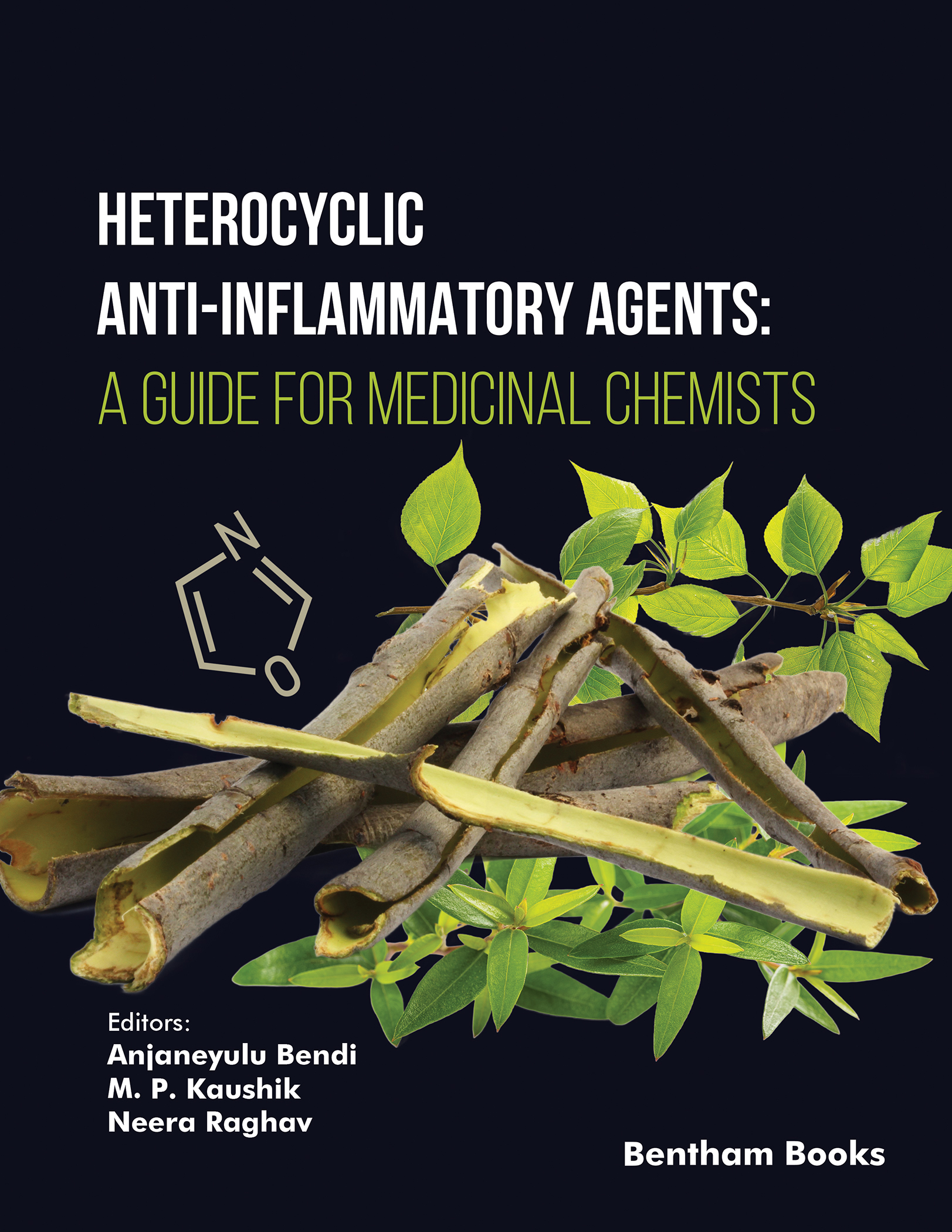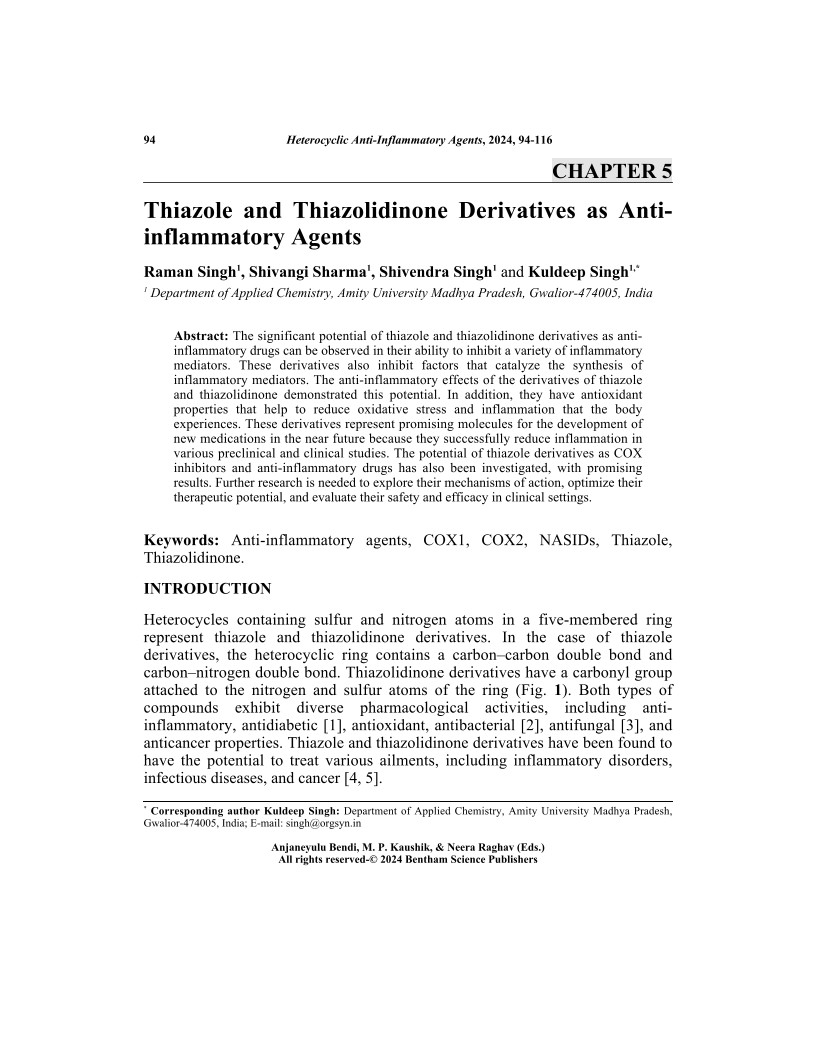Thiazole and Thiazolidinone Derivatives as Anti-inflammatory Agents

- Authors: Raman Singh1, Shivangi Sharma2, Shivendra Singh3, Kuldeep Singh4
-
View Affiliations Hide Affiliations1 Department of Applied Chemistry, Amity University Madhya Pradesh, Gwalior 474005, India 2 Department of Applied Chemistry, Amity University Madhya Pradesh, Gwalior-474005, India 3 Department of Applied Chemistry, Amity University Madhya Pradesh, Gwalior-474005, India 4 Department of Applied Chemistry, Amity University Madhya Pradesh, Gwalior-474005, India
- Source: Heterocyclic Anti-Inflammatory Agents: A Guide for Medicinal Chemists , pp 94-116
- Publication Date: May 2024
- Language: English
Thiazole and Thiazolidinone Derivatives as Anti-inflammatory Agents, Page 1 of 1
< Previous page | Next page > /docserver/preview/fulltext/9789815223460/chapter-5-1.gif
The significant potential of thiazole and thiazolidinone derivatives as antiinflammatory drugs can be observed in their ability to inhibit a variety of inflammatory mediators. These derivatives also inhibit factors that catalyze the synthesis of inflammatory mediators. The anti-inflammatory effects of the derivatives of thiazole and thiazolidinone demonstrated this potential. In addition, they have antioxidant properties that help to reduce oxidative stress and inflammation that the body experiences. These derivatives represent promising molecules for the development of new medications in the near future because they successfully reduce inflammation in various preclinical and clinical studies. The potential of thiazole derivatives as COX inhibitors and anti-inflammatory drugs has also been investigated, with promising results. Further research is needed to explore their mechanisms of action, optimize their therapeutic potential, and evaluate their safety and efficacy in clinical settings.<br>
-
From This Site
/content/books/9789815223460.chapter-5dcterms_subject,pub_keyword-contentType:Journal -contentType:Figure -contentType:Table -contentType:SupplementaryData105

